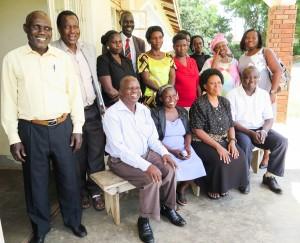
By: Joan Komsoon, African Women's Development Fund and Richard Mugenyi, Reproductive Health Uganda
Advance Family Planning partners African Women Leaders Network (AWLN) and Reproductive Health Uganda (RHU) engaged in advocacy in Nebbi district in north-western Uganda last month to encourage district leaders to allocate funding in the district budget for family planning. The objective was a budget allocation for family planning the 2016/17 fiscal year, however their strong advocacy resulted in an immediate allocation of 10,000,000 Ugandan shillings (approximately US $4,000) in the upcoming fiscal year instead.
AWLN and RHU held a series of meetings with community leaders, reproductive health and family planning service providers, and health service practitioners in the district, finally meeting with the District Executive Committee on Wednesday May 26, 2015. After presentations on the benefits of investing in family planning, the potential for improving the lives of the women and girls, and the overall impact on development of the district, the District Chairperson (equivalent to the Mayor), called on his Finance and Development Planning Directors and instructed them to immediately “go back and look into the budget and find money for family planning.” He stated that they did not need to wait till next year to make this important investment and that they would allocate a modest amount and make progressive increments over the next few years.
Realizing critical role family planning plays in social transformation and economic development swayed the decisionmakers. “After hearing from you, with all that evidence, it doesn’t matter what my views on family planning were. I am in support of investing in family planning. We have already lost 30 years, we cannot afford to lose more,” said Richard Orieda, the District Secretary for Finance and Administration.
AWLN will continue to monitor Nebbi district’s commitment to ensure that the funding is released and put it to the specific use for which it was allocated.

